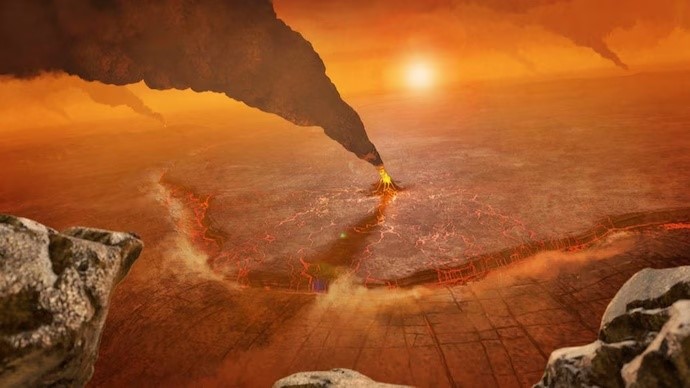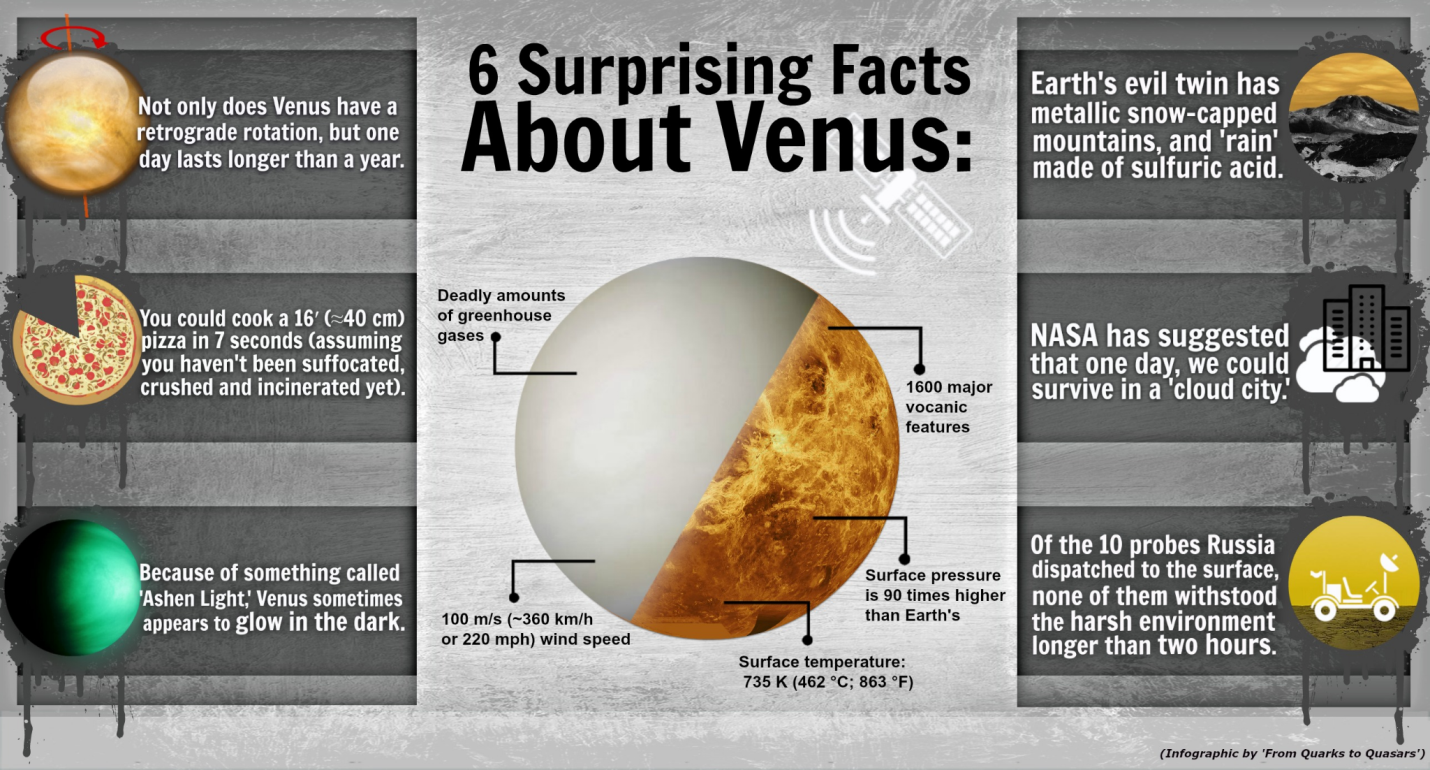Description

Copyright infringement not intended
Picture Courtesy: https://www.indiatoday.in/science/story/venus-had-water-like-earth-we-finally-know-how-all-of-it-evaporated-2536170-2024-05-07
Context: A recent study published in the research magazine Nature by a group of US scientists examines why water disappeared from Venus.
Key Findings from the Study
Role of Hydrogen Chemistry
- The study shows that hydrogen chemistry in Venus's atmosphere plays a crucial role in the loss of water. Specifically, a molecule called HCO+ (which contains one atom each of hydrogen, carbon, and oxygen) interacts with electrons high in the planet's atmosphere. This interaction splits HCO+ into hydrogen atoms, which then escape into space. This process effectively robs Venus of hydrogen, one of the key components of water (H2O).
Escape of Hydrogen Atoms
- The hydrogen atoms produced from the breakdown of HCO+ are able to escape Venus's atmosphere into space. This phenomenon, driven by hydrogen chemistry, contributes significantly to the loss of water from the planet over time.
Water Loss Estimation
- The study estimates that the splitting of HCO+ and subsequent loss of hydrogen atoms could result in Venus losing twice as much water as previously estimated by other studies.
|
This study highlights the complex interplay of chemistry and atmospheric dynamics in planetary evolution and highlights the importance of further exploration and observations to validate theoretical models and hypotheses about Venus's history and current state.
|
About Venus
- It is the second planet from the Sun; it is a terrestrial planet with extreme conditions.
- Venus has the densest atmosphere among the terrestrial planets, mainly composed of carbon dioxide with thick sulfuric acid clouds covering the globe.
- The surface temperature averages around 464 °C, and the atmospheric pressure is about 92 times that of Earth's at sea level.
- Venus is the hottest planet in our solar system due to its thick atmosphere rich in greenhouse gases like carbon dioxide, which traps heat.
- The planet has a core, mantle, and crust similar to Earth, but lacks plate tectonics. Instead, its surface is shaped by active volcanism. Venus's internal heat escapes through volcanic activity, contributing to resurfacing processes.
- Venus is unique among the planets in our solar system because it rotates on its axis in a clockwise direction, also known as retrograde rotation.
- The sun would rise in the west and set in the east, which is opposite to the rotation direction of most other planets, including Earth.
- Venus and Uranus are the only two planets in our solar system that exhibit this unusual "backwards" rotation.
- A Venusian day lasts longer than its year, taking approximately 243 Earth days. The orbit of Venus around the Sun takes about 224.7 Earth days.
- Venus is one of two planets (other Mercury) in the Solar System that does not have any moons.
|
Conditions potentially suitable for life have been identified in Venus's cloud layers, though the surface is inhospitable due to extreme temperatures and atmospheric composition. Early in its history, Venus may have had liquid surface water and a more habitable environment before a runaway greenhouse effect altered its climate.
|

Source:
Telegraph
Britannica
|
PRACTICE QUESTION
Q. Venus is often called Earth's twin planet due to its similar size and density. However, the surface conditions on Venus are vastly different. Which of the following statements about Venus is not true?
A) Venus has a thicker atmosphere than Earth.
B) Venus experiences a runaway greenhouse effect.
C) Venus has a slower rotation rate than Earth.
D) The surface temperature of Venus is hot enough to melt lead.
Answer: C
|

















